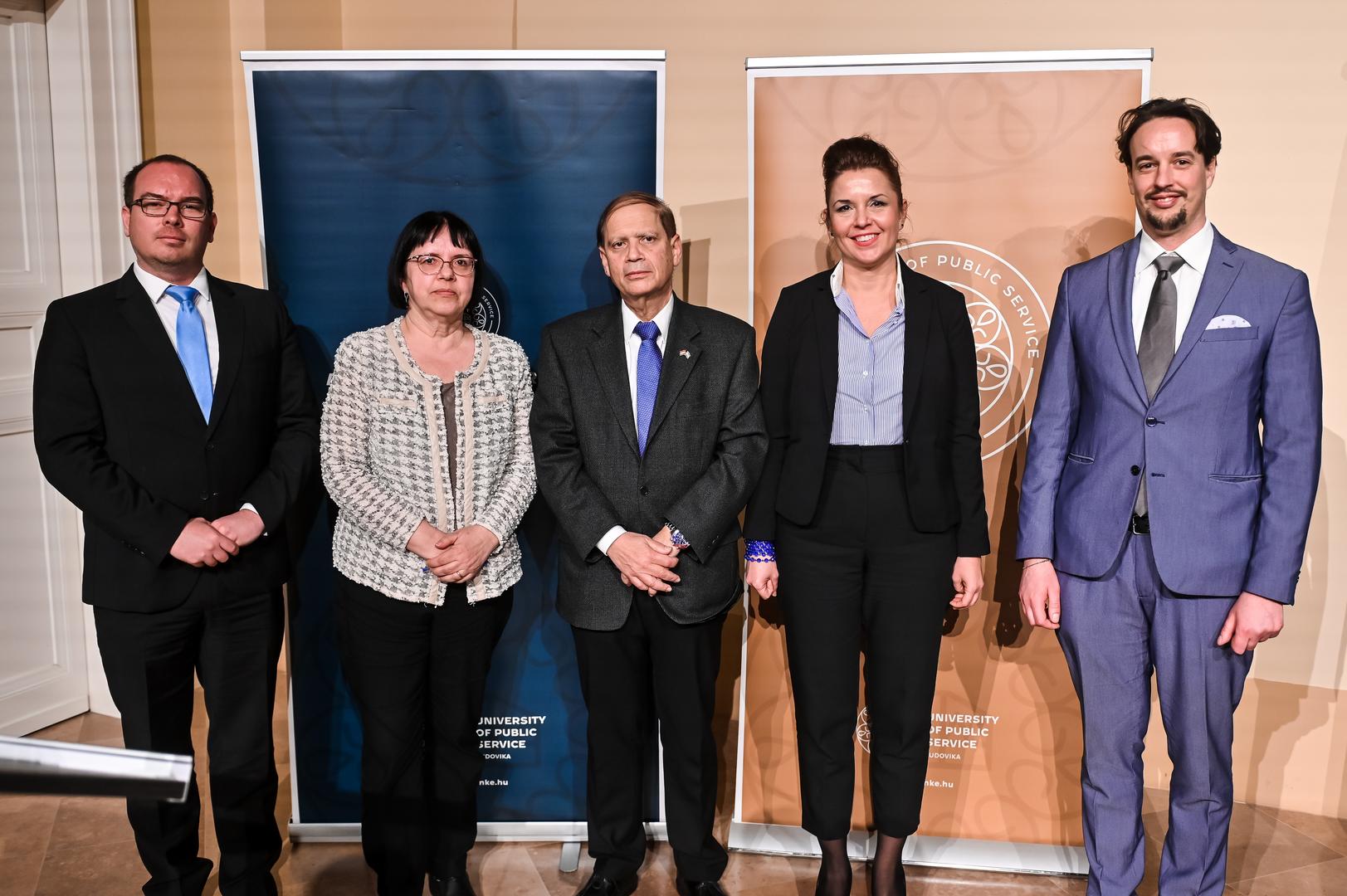
His Excellency Yacov Hadas-Handelsman, the Ambassador Extraordinary and Plenipotentiary of the State of Israel to Hungary, was the guest of the Ambassadors' Forum at Ludovika on 6 April. His presentation focused on the upcoming challenges of both his country and the European Union and the transformation of the rapidly changing international political scene.
Boglárka Koller, Vice-Rector for International Affairs, emphasized in her welcome speech that monitoring and exploring global political relations were particularly relevant in light of the events in Ukraine.
"Since I accepted the invitation to this event two months ago, a lot has changed in the world to which I had to adapt my speech," the diplomat began his presentation. Yacov Hadas-Handelsman considered the paradigm shift in military and economic attitudes as the most significant change in world politics brought about by the Russo-Ukrainian war. He also spoke about the role of the internet and media in the armed conflict: "A laptop can do more damage on the battlefield than an army. The duration of wars is also changing as everyone learns everything through the media; the world is watching. Crimes against humanity can no longer be hidden; all atrocities are recorded," he pointed out. The internet is a "soft power" that is accessible to anyone, connecting the user to all other parts of the world. It is not by chance that the US administration is increasingly using social media as a platform for politicians to influence others' events and beliefs. The armed conflict in Ukraine is under the full attention of the world. "Nothing remains a secret because everything is visible on Tiktok and Twitter. The war also allows countries to express themselves in the global political space, which had less opportunity to do so earlier." The Ambassador highlighted Qatar, the country having one of the world's largest oil and gas reserves. This emirate in the Middle East offered its help if Russia cut off its gas supplies to Europe, provided severe, long-term economic conditions were fulfilled. According to the Israeli Ambassador, our country also has grand political ambitions.
After the keynote speech, the program continued with a roundtable discussion moderated by Péter Rada, Associate Professor in the Department of European Studies at the Faculty of Public Governance and International Studies of the UPS. The debate was also attended by Erzsébet Nagyné Rózsa, professor of the Department of International Relations and Diplomacy of the UPS and Krisztián Manzinger, a research assistant at the Institute of Strategic Studies of the UPS and the deputy head of the Institute of Social Sciences and International Studies at the Faculty of Law and Political Science of the Károli Gáspár University of the Reformed Church in Hungary.
The panel focused on the war in Ukraine. "It is in everyone's interest for the war to end as soon as possible," the Israeli Ambassador said. He added that the Russian presence in the Middle East had been significant since the military aid against the Islamic State, greatly influencing Israeli decision-making. According to Erzsébet Nagyné Rózsa, the European food industry is most in danger. The most important grain producers are directly involved in the war. It would affect the continent's food prices and threaten countries like Egypt, where the situation has been critical for years. According to Krisztián Manzinger, history shows the mistakes made in the past, from which we should learn.
Yacov Hadas-Handelsman also referred to the Abraham Convention, a joint agreement signed between the State of Israel, the United Arab Emirates and the United States in September 2020 to alleviate conflicts in the region. As a result, economic success is most noticeable, but it can also boost diplomatic relations in the long run. Regarding the "historical convention", Erzsébet Nagyné Rózsa said: "Its existence is a key in deepening the cooperation".
The Ambassadors' Forum at Ludovika ended with a screening of Israeli culture and a live concert.
Text: Gyalog Kincső
Photo: Szilágyi Dénes